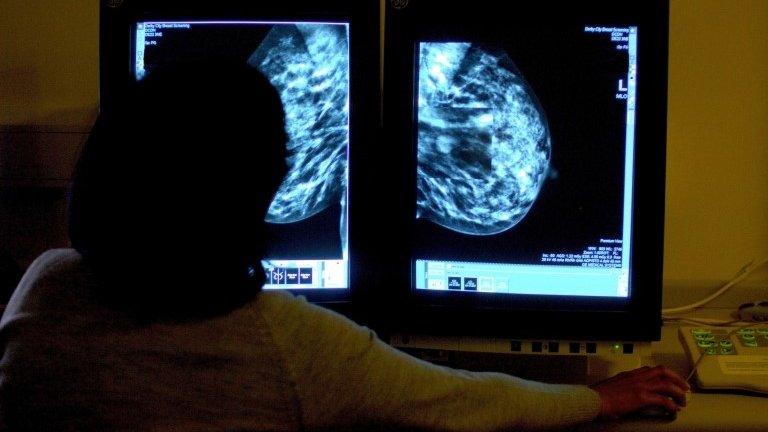'Relentless drive' call for early cancer diagnosis
- Published
Alison Woolcock lost a brother and sister to cancer
Wales needs a relentless drive towards earlier cancer diagnosis, an expert in the field has said.
Tom Crosby, medical director of the Wales Cancer Network, made his comment as the Welsh Government launched its refreshed cancer delivery plan.
In it, the Welsh government has committed to continuing to improve survival rates for cancer and reduce early deaths caused by the disease.
Health Secretary Vaughan Gething said survival rates increased year on year.
The revised plan is focusing on delivering better results for lung cancer patients, improving early detection through better access to diagnostic tests and ensuring the highest standards of care.
The Welsh government is aiming to close the gap with the best providers of cancer care in Europe.
In October, the UK Lung Cancer Coalition said Wales needed "drastic improvement" to improve its five-year survival rates, which are the lowest in the UK.
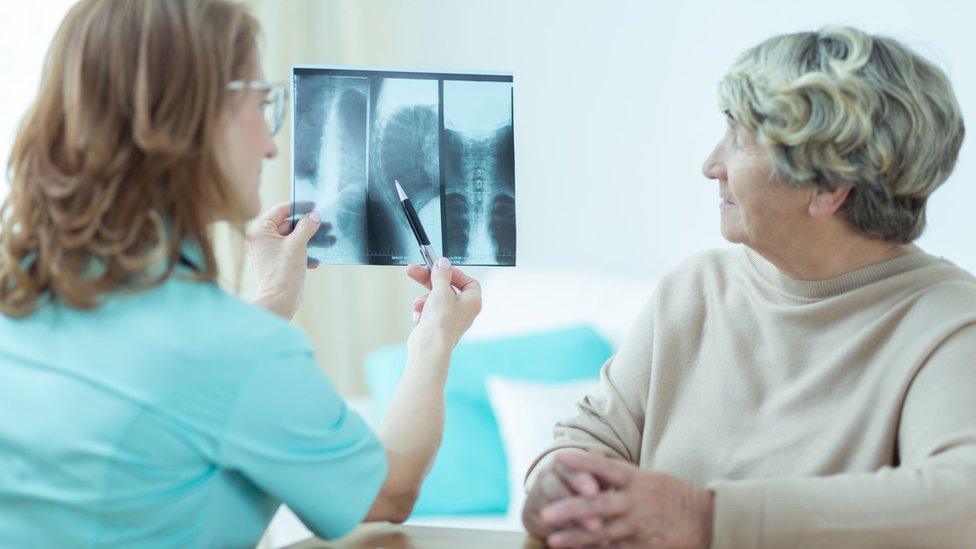
Dr Crosby wrote in an introduction to the revised plan: "We must lead a relentless drive towards earlier diagnosis.
"We are aware that Wales performs less well in this compared to other developed countries worldwide. Diagnosing cancer early allows for a combination of less aggressive and less expensive treatment, improved patient experience and quality of life, and crucially, better survival."
Mr Gething said: "Sadly, cancer touches all our lives at some point. Most of us will know a friend or relative that has had the disease; some will have had a personal experience of it.
"Some will have lost the fight, but thankfully, many will have survived and gone on to live full and healthy lives.
"We're proud that here in Wales cancer survival rates continue to increase year on year. Early death through cancer has declined by around 14% over 10 years."
He said spending on cancer services had risen from £347m in 2011-12 to £409m by 2015 and the government had allocated £15m in the draft budget for better diagnostics.
Susan Morris from Macmillan Cancer Support in Wales welcomed the plan, saying: "We are pleased the plan aims to have outcomes and services that match the best in Europe and wants to tackle the inequalities which mean that people from our most deprived communities are more likely to develop cancer than those in our least deprived areas.
"A cancer diagnosis can affect so many parts of a person's life so we are pleased the plan commits to people being offered a key worker, a needs assessment and a care plan as well as information on where to access welfare benefits advice."
Follow our Pinterest, external board Shining a Light on Cancer
- Published15 November 2016
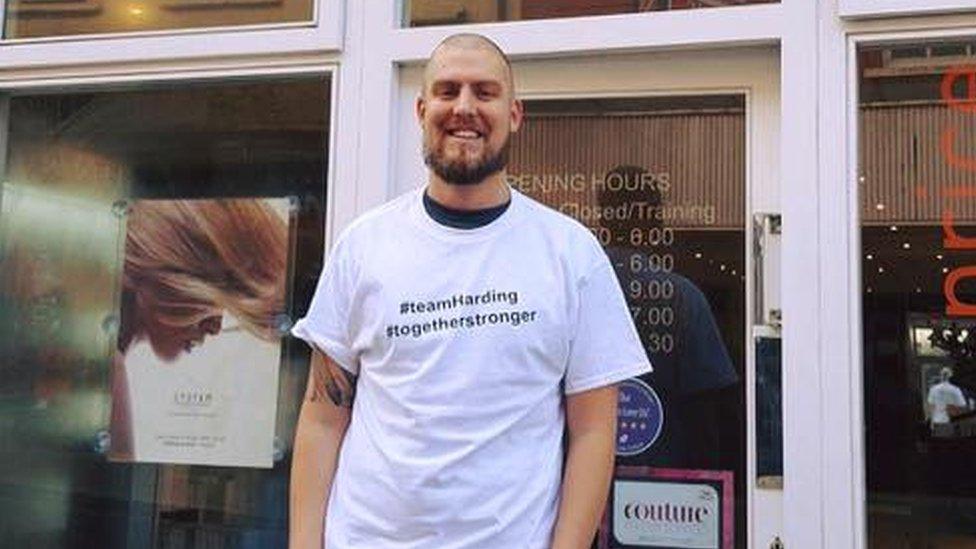
- Published19 October 2016
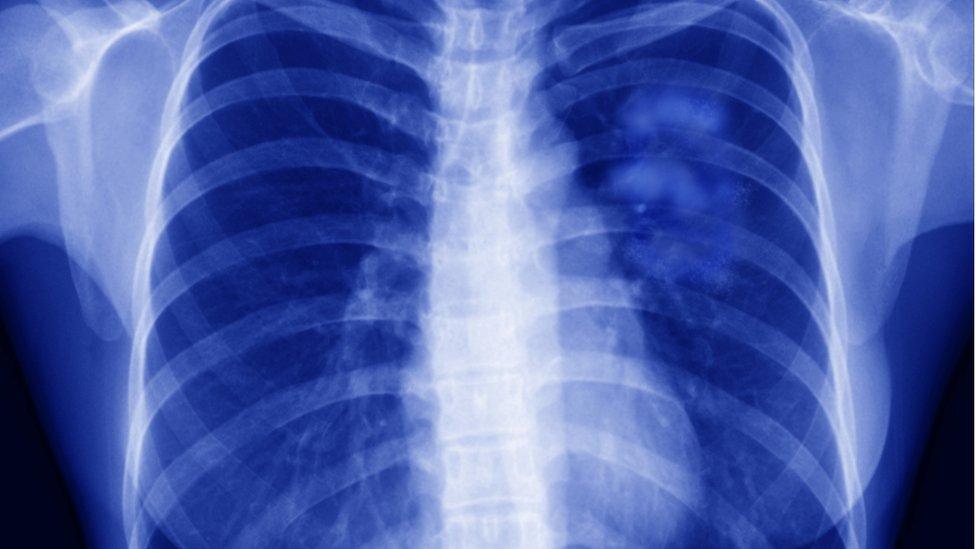
- Published9 June 2016
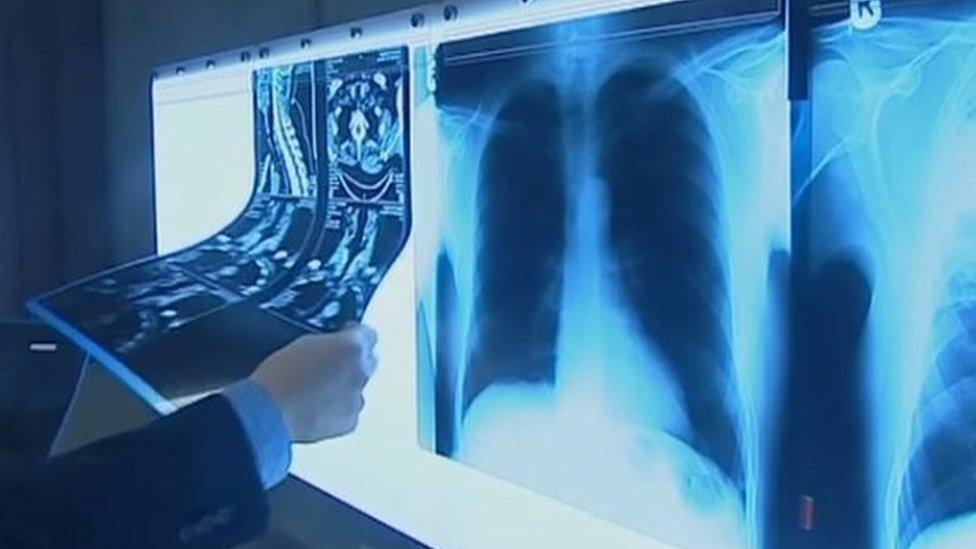
- Published20 July 2016
